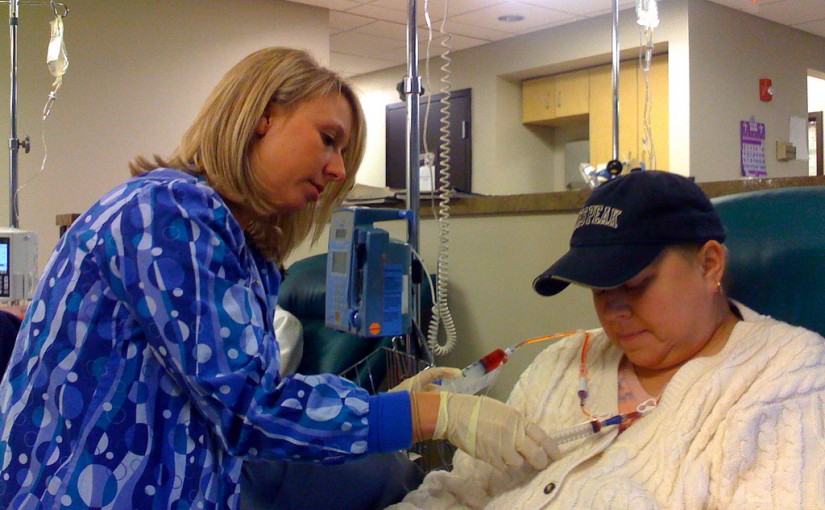We’ve come a long way in how well we understand cancer, its risk factors, and how to fight it. But as awareness grows, so has misinformation. There are a lot of myths out there about what cancer is, its risk factors, and its treatments.
Let’s set the record straight. Here are five of the most common myths about cancer, and the truth about them:
- Cancer is a death sentence.
Though many of the big cancer stories in the media involve life-threatening cases, this does not reflect today’s reality about cancer.
In fact, research and treatment for cancer has come a long way. According to the Annual Report to the Nation on the Status of Cancer, patients in the United Sates now have over a 90 percent five-year survival rate for many cancers including breast, prostate, thyroid and more. The five-year survival rate for all cancers is at 66 percent.
- Sugar makes cancer spread.
This myth is rooted in the fact that cancerous cells consume more glucose (sugar) than healthy cells. But that’s as far as the truth for this myth goes.
The belief that because cancer cells consume more sugar, that consuming more sugar makes cancer spread, is false. Likewise, cutting sugar out of your diet will not make cancer shrink or disappear.
- _____ causes cancer.
Artificial sweeteners, cell phones, power lines, microwaves, and many other products of modern life have been said to be associated with a higher risk of cancer. But for all the items listed here, any kind of link to cancer risk has not been proven by any scientific research to date.
In fact, many of these concerns are more rumor than truth. If you have questions about whether an item can increase your risk, talk to your doctor.
- A person’s attitude can determine his/her cancer treatment success.
When a person is fighting cancer, it is normal to feel all kinds of extreme emotions—including ones that are typically classified as “negative” such as sadness, anger, and discouragement.
This is okay, and there is no scientific evidence that experiencing these feelings reduces your chances of getting cancer, beating cancer, or having a recurrence.
- If a person’s relative gets cancer, they will, too.
It’s true that risk factors for some cancers are genetic, not all of them are. In fact, only 5-10 percent of cancers are genetically linked.
Of course, this myth has a dangerous flip side—the belief that if an individual is not related to anyone who has had cancer, that s/he won’t ever get cancer, either. The truth is, about 40 percent of the general population gets cancer at some point in their lives, according to Cancer.gov.
Knowledge is power
Cancer can be scary, and with so many different kinds, it is hard to understand. This leads to inaccuracies and even totally non-factual information spreading.
But knowledge is power. Knowing the facts about cancer can help you make good decisions to control your risk factors, catch cancer early, and live a healthy life. If you’re not sure if something you hear about cancer is accurate, research it or ask a doctor.

Leave a Reply
You must be logged in to post a comment.